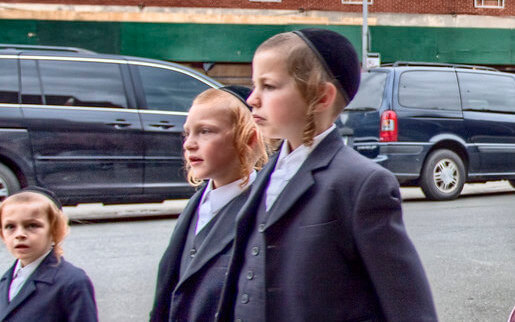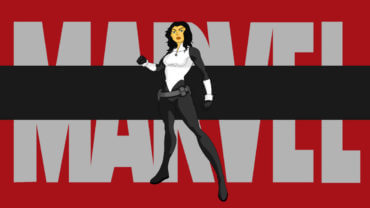
I’m Tired of the Leaving Orthodoxy Narrative
At the start of the new year, The New York Times published a piece called, “I Left My Faith. God Didn’t Flinch.”
The writer speaks about her journey from a modern orthodox girl to an openly queer nonbinary individual. She journals about the transition and the way Judaism presents in her life today. While I’m happy this person found her bliss, I have an issue with the obsession secular media takes with those leaving Orthodox Judaism.
The only stories we seem to hear are about someone who grew up in a rigid world and then only found themselves when they were able to breathe the fresh air of a life outside of it.
This narrative is frustrating, not because I doubt or want to minimize the lives of the stories told — those are real and ultimately, that person’s story. I’m angered by the fact that it doesn’t seem like anyone wants to believe there’s another side to a life in the faith, that being surrounded by the Orthodox Jewish world can represent the freedom those “escaping” are actually looking for.
I’m someone that came from that other side. I grew up in a secular, reform Jewish home. We ate bacon and shrimp, weren’t aware of Shabbos besides when we saw Jews walking around on Saturdays and I didn’t even know what Shavuot was until I was in college because the Hebrew school year is already over by the time it comes around in the summer.
When I started learning about what Orthodox Judaism was on the inside, from people living that life, I found it rich with spirituality, with learning what it truly means to live an authentic, connected and vibrant life. I felt like I was taking classes that no one thought to teach me before. In a secular high school, you don’t learn about how much beauty there is in the Jewish view on dating or how much value there is on the woman’s soul.
From the outside looking in, you only see oppression and discrimination. You only hear the whispers of Jews having sex through a sheet, that a woman is impure on her period and that they all have to shave their heads once they’re married. It’s an ominous, unfavorable presentation in the secular Jewish world, and it’s unfortunate because so many people are missing out on the very thing they’re looking for in the first place: connection.
When I started going to Shabbat dinners at my university’s Chabad on Friday night, I didn’t feel oppressed, I felt fulfilled. I felt the beauty of a Shabbat meal, the warmth of freshly baked challah and steaming chicken soup. I felt the ability to speak to my friends and those around me without the distraction of cell phones (and this was pre-social media). I loved the idea of coming together at the end of a long week.
The writer in the New York Times piece speaks about the moment she broke Shabbat for the first time. She turned off the light and lightning didn’t strike her down. I feel sad that this is the God she grew up with, instead of the One that just wants a relationship.
Yes, there are rules and laws that we follow that can feel overwhelming if you’re taking them all on at once. But we don’t live our life by these laws because we’re fearful of what dangerous “mother nature” occurrence will smite us when we don’t. We live this way because without it, life loses some of its connection.
When you’re eating healthy, working out and getting enough sleep, you don’t feel worse, you feel great. Yet, doing those things requires restriction. If you go to sleep early you have to restrict the TV you watch late at night. When you work out you have to fight the sloth-like tendencies pulling you back to earth. Yet when you do it, you never regret it.
I once heard a podcast where the guest said all of life is about “choosing your hard.” It’s hard to eat healthy but it’s also hard to not and then feel bad afterward. It’s hard to exercise but it’s hard to never exercise either. Your body can be in pain from the lack of it. It’s hard to go to sleep early but it’s also hard when you wake up with a headache and have to fight through the entire next day in a sleep-deprived struggle.
It’s hard to live an Orthodox Jewish life at times, as it’s a life of constant growth and learning and trying to be your best, and yes, there are laws we follow, but it’s also hard to not. I am someone who knew both worlds. I would much rather choose a connected, monogamous relationship with my husband, dating one person at a time in a real, honest way to get there than a life of feeling like I need to sleep around in order to find “the one.”
Observing Shabbat isn’t a struggle for me now, but when I was growing in my Judaism, I had to make choices. If I wanted to go to this Shabbat dinner, I couldn’t go to this concert happening somewhere else. As I did it for longer, the struggle diminished. It wasn’t even a question of what I would do. Shabbat was the light, the beauty, the holy day that gave me the energy for the rest of the week.
I don’t avoid turning on the lights because I’m afraid of what Hashem will do, I do the things Hashem tells us to do because I want a deeper connection with Him, understanding that sometimes, I just won’t know the reason why I’m doing it besides He said so. Doing His mitzvot brings me closer to the Source and that only brings more light.
I’m human and I make mistakes. I don’t always get it right, but I’ve come to develop a relationship with God where I know He is always there for me. If I accidentally use the ice machine on my fridge, or shut the light off in the bathroom out of reflex, I smile and say, “Sorry, Hashem!” We’re human, mistakes are okay and bound to happen.
Instead of praying in the morning out of guilt, I do it because if I don’t, I feel slightly off the rest of the day. It’s a religion about relationship — one with yourself, with others and with God. Instead of living in the escape and bashing the ritual, I suggest the new narrative should be one of “connecting to.” Every mitzvah we do is an opportunity to grow, to get closer, to work on ourselves. When was life supposed to be just one of comfort and ease, anyway?
So next time you hear about the rigidity and pain of a religious Jewish life (because there will be a next time, unfortunately), remember it’s not the only story to tell. Judaism has beauty, it has wisdom, it has tradition and all of those things, plus you know, God Himself, have kept us alive today. In a time we need connection more than ever, maybe it’s something worth exploring.
If you found this content meaningful and want to help further our mission through our Keter, Makom, and Tikun branches, please consider becoming a Change Maker today.








4 comments
Sort by
Same. Also grew up as the only Jewish kid in my class. My parents were born in the US and some of my grandparents were too, so when one guy told me “to go back where I came from” I was quite confused. Back into my mother’s uterus?
There’s a wonderful book by an author who shares your frustration. Judy Gruen wrote The Skeptic and the Rabbi about her journey to Torah and observance to counter some of the negativity. Having been a published humor writer for many years, Judy’s book is very readable and enjoyable, while at the same time a serious exploration of the new way of life she chose.
Beautiful article. It often gets lost that just as many, probably more, people are choosing Torah Judaism rather than choosing to abandon it. The ones who leave often come from dysfunctional, unhappy homes, and when they air their dirty laundry in public people think all Orthodox families are like that. It’s also a shame that we’ve been deluded into thinking fulfillment comes from quick self-indulgence fixes rather than working over the long run at relationships with spouses, children, and God.
Amen. I’m not Jewish, I’m Mormon, but the media portrayals are honestly exhausting. Like, there has to be some sort of in between “I left but I’ve healed” and “I’ve left bc it’s the worst thing in the world and everyone in it is stuck in a cult.” I respect people and their decisions, but not feeling like my voice won’t ever get heard.